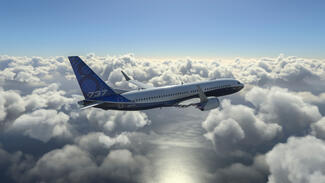Federal safety officials have mandated inspections of cockpit seats on Boeing 787 Dreamliners following an alarming incident where one of the jets suddenly dove when the captain's seat unexpectedly lurched forward, disengaging the autopilot. The Federal Aviation Administration (FAA) will require operators of 787s to inspect both pilot seats for missing or cracked caps that cover a crucial switch controlling seat movement. The inspection order, set to be published on Wednesday, affects 158 planes registered in the United States.
The incident occurred during a March flight operated by Chile-based Latam Airlines, en route from Australia to New Zealand. The captain's seat moved forward without warning, striking a switch that disconnected the autopilot, causing the plane to drop 400 feet before the co-pilot regained control. Several passengers were injured during the event. Boeing had promptly recommended that airlines inspect the cockpit seats of 787s for loose switch caps and provided guidance on how to disable power to the motorized seats.
This order comes after the FAA received reports of four other instances where cockpit seats on 787s moved unintentionally, including a recent case in June.
In a separate safety directive, the FAA also issued a rule requiring airlines to inspect engine anti-ice systems on 787s for heat damage. This action follows reports of damage caused by missing or degraded seals around the ducts, an issue Boeing identified in bulletins sent to airlines last year.
In another development, Boeing has suspended test flights of its new 777-9 jetliner after discovering cracks in a structural component known as a thrust link. This part, which helps balance the load between the engines and the aircraft, was found damaged during maintenance after a test flight returned to Hawaii. Boeing has stated that the part is specific to the 777-9 and is not used on existing 777 models or other aircraft. The company is replacing the faulty component and has halted test flights until further analysis and corrective actions are completed.
Boeing, headquartered in Arlington, Virginia, is keeping the FAA and airlines updated on these issues as it works to resolve them. The 777-9, notable for its innovative folding wingtips, is a key part of Boeing’s future long-range aircraft lineup but has not yet received regulatory approval.


